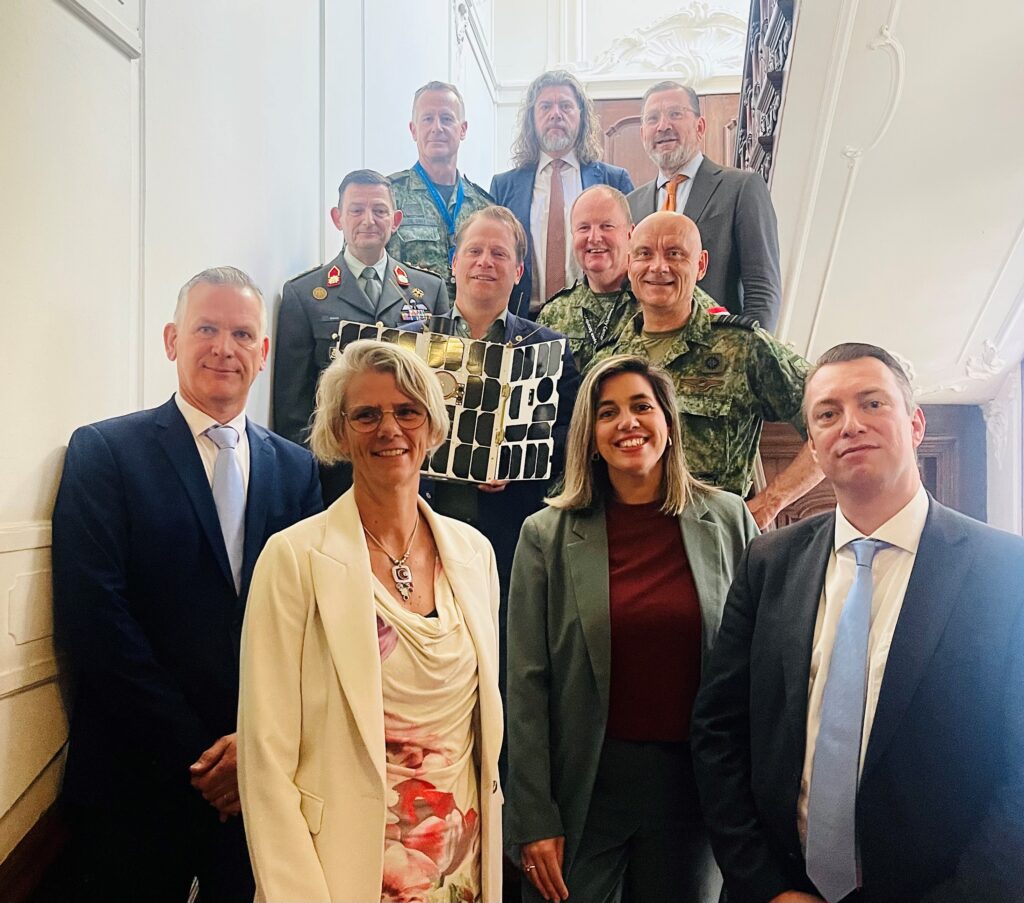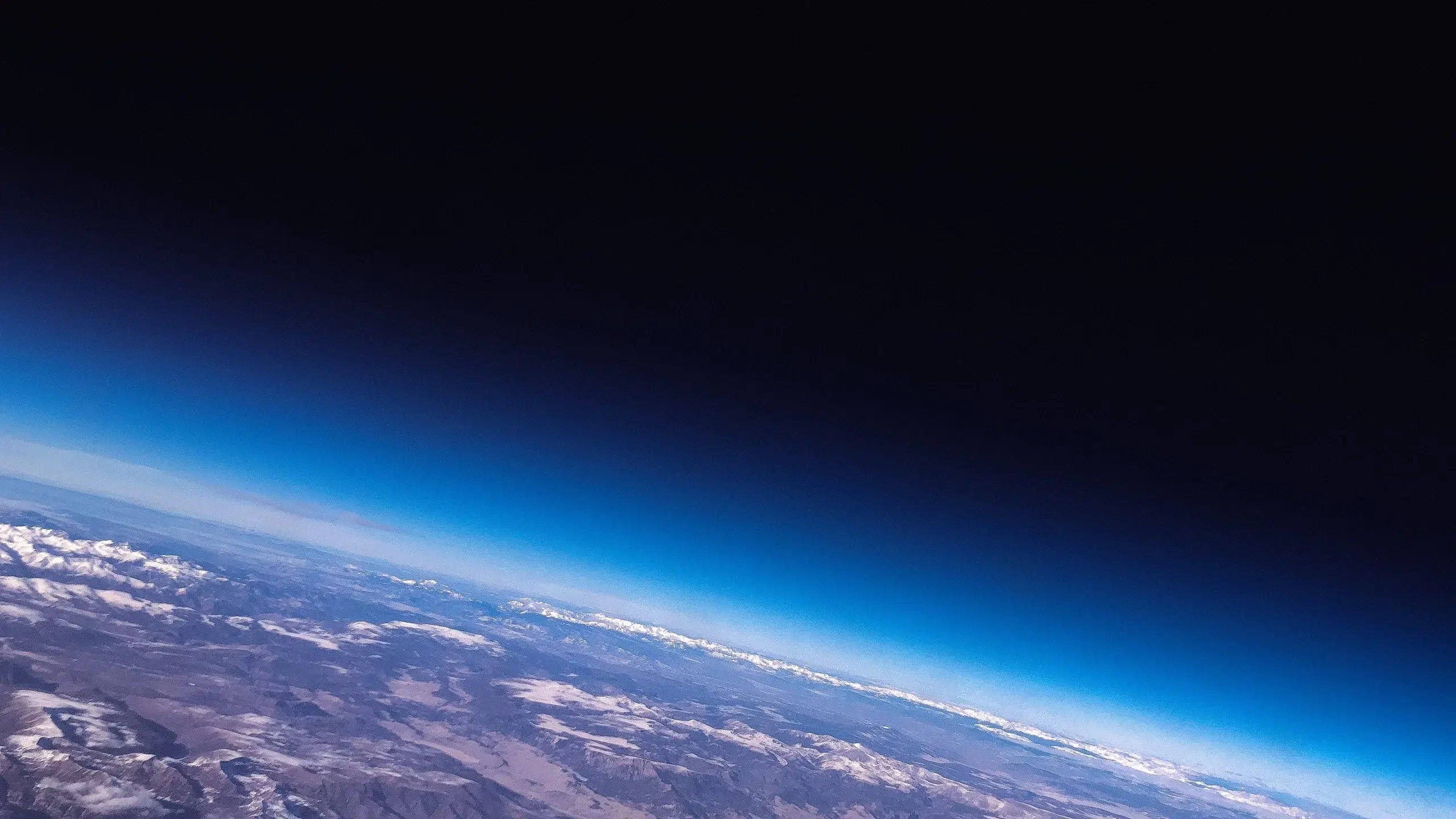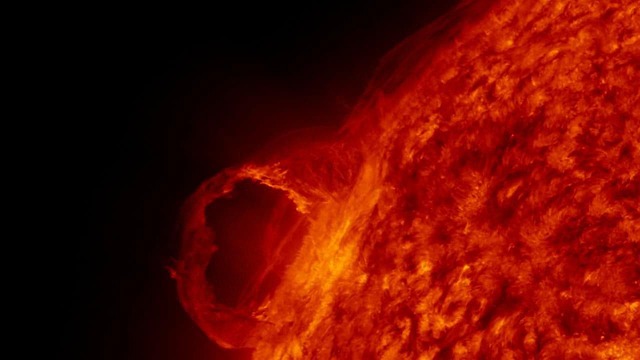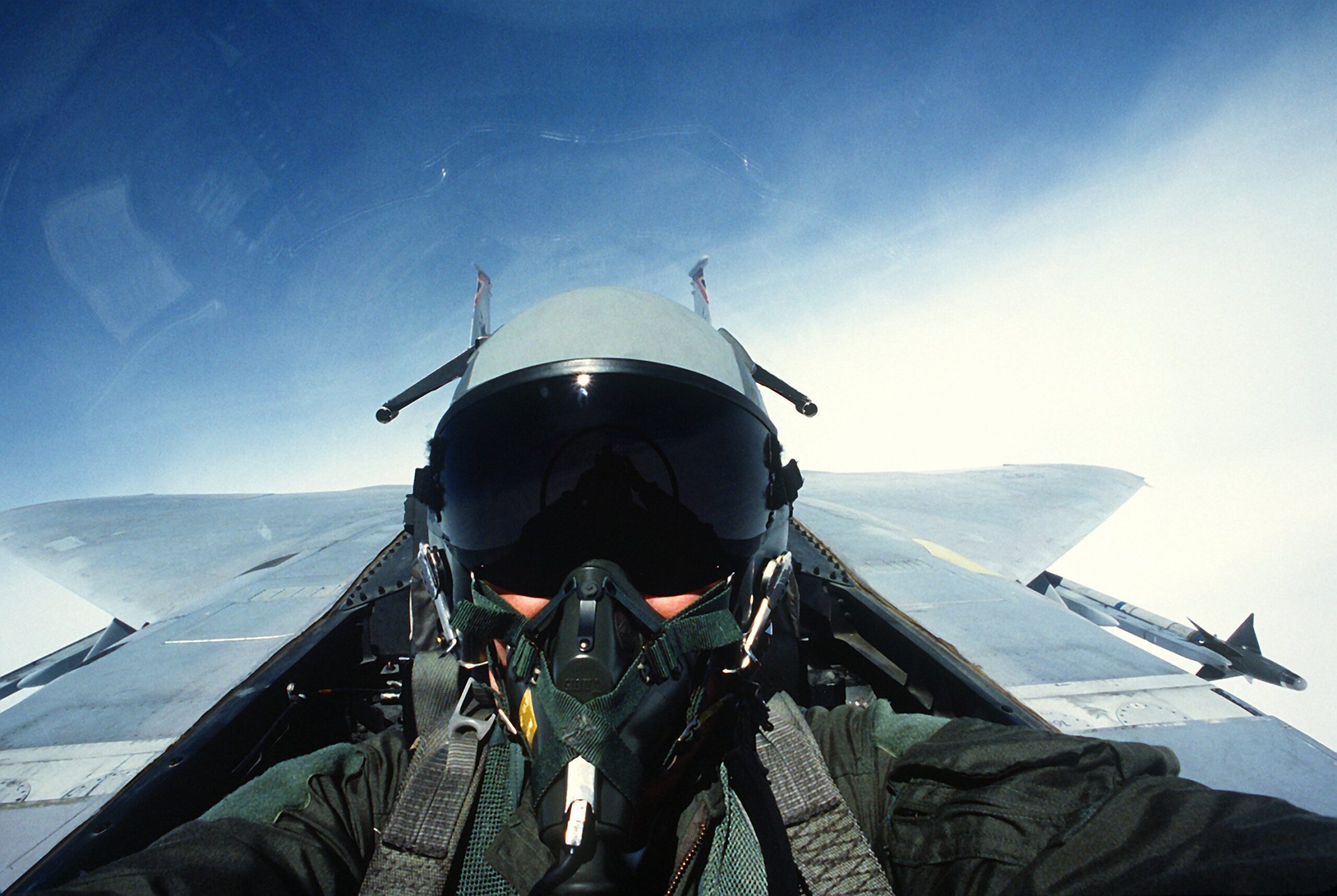The war in Ukraine is clearly contributing to tensions between the current geopolitical power blocks. The world feels less safe since Russia’s invasion, and as a NATO ally, the Netherlands is also being asked to contribute to joint measures. This applies to the Dutch space sector as well, which has drawn up a proposal for this purpose.
The proposition ‘Military use of Space’ was presented to Gijs Tuinman, the Secretary of State for Defence, in The Hague today. “It’s great that the sector is coming up with this proposal for a Dutch Defence satellite constellation,” he says. “The urgency is great, and we’re all aware of that. Money, knowledge, and resources go hand in hand. We need to come up with suitable and adequate answers to unwanted situations that may arise in the near future as quickly as possible.”
Mark van Venrooij, Vice President Aerospace Systems at NLR: “With government support, the Netherlands can accelerate the launch of high-quality satellite systems and their development with state-of-the-art innovations. These are essential elements for staying ahead of threats in the future.”
Hendrik-Jan van Veen, Managing Director Defence and Security at TNO, adds: “The situation in Ukraine teaches us once again that the space domain is crucial for ensuring safety and information dominance. Strategic autonomy is also an important element in this regard.”
“The Netherlands is one of the leading European countries in the field of high-tech and reliable space solutions,” continues Jeroen Rotteveel, Chairman of space industry association SpaceNed, who presented the proposition to the Secretary of State. “It’s only logical that we respond to this as a sector. SpaceNed forms a connecting link between all parties involved to stimulate the Dutch space sector, create opportunities for growth, and address these types of challenges for the Netherlands through space solutions.”
The network of satellites will be developed by various companies from the Dutch aerospace industry, in collaboration with knowledge partners NLR and TNO. Firstly, FSO Instruments, which specialises in laser satellite communication. Next, VDL-ETG, which works on the serial production of satellites. In addition, satellite developer ISISPACE and finally S[&]T, a technical company specialising in antennas, data processing, and positioning, navigation, and timing.
With a financial impulse, the parties want to accelerate and intensify the existing plans of the Netherlands in the field of military space, by having the space system operational within a few years. In this way, the national industry can play a crucial role in preventing the Netherlands, as well as Ukraine, from being blind and deaf to current and future threats. The State Secretary emphasised the importance of this development and indicated that he will remain actively involved in the implementation of these plans over the coming weeks.




